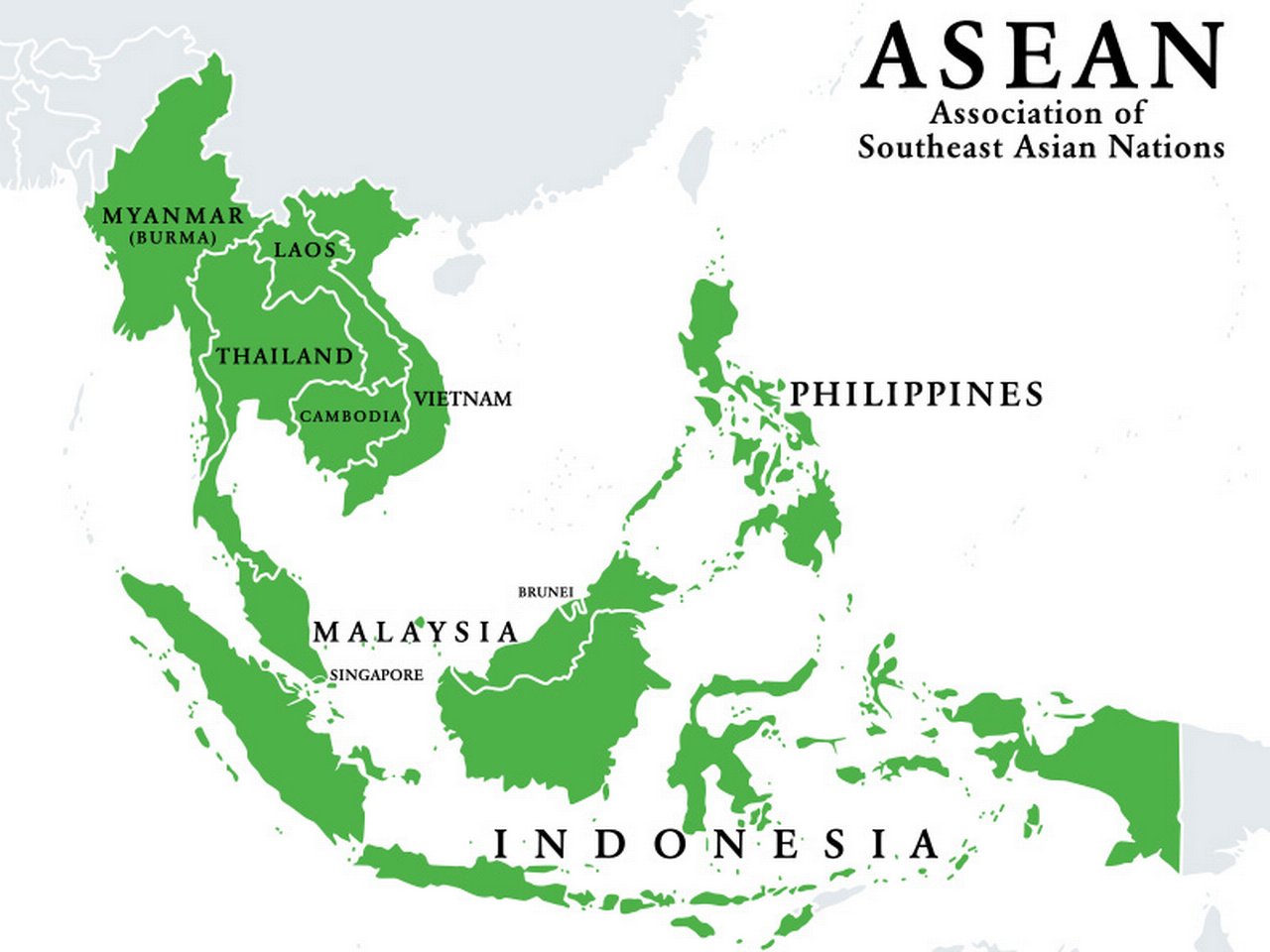27 July 2021
The ten countries that comprise the Association of Southeast Asian Nations (ASEAN) make up a cohesive, cooperative trading bloc first established in Bangkok, Thailand on 8 August 1967. This microsite provides a guide in the form of a series of in-depth flow articles and multimedia interviews on the opportunities for doing business within and from the region
MINUTES min read

Successful integration of both economic and financial markets, elimination of most intra-ASEAN tariffs, support of its SMEs’ participation in global value chains as well as its embracing of the Fourth Industrial Revolution (4IR) have helped the bloc weather economic shocks such as the Global Financial Crisis of 2008−09 and the ongoing battle with Covid-19.
Although a very diverse region, with each country’s market calling for an individual approach to doing business there, some common themes stand out. Despite the pandemic and some inevitable contraction of FDI inflows and economic growth, these fundamentals continue to offer many long-term incentives to investors and lenders. In addition, the Regional Comprehensive Partnership (RCEP) agreement signed in Hanoi in November 2020, provides a trade corridor with China, South Korea, Japan, Australia and New Zealand, covering 38% of global GDP and 28% of the world’s trade.1
ASEAN potential
- Emerging consumers and middle class. Many of these countries have low average ages with a growing number of young consumers and middle classes. This trend is particularly pronounced in Indonesia, the Philippines, Myanmar and Vietnam. By 2022, around 50 new consumers in these countries, together with Thailand are expected to move into the middle class demographic bracket. The transition drives consumer demand for telecoms, mobiles, and fast-moving consumer goods.
- Deepening financial markets. ASEAN’s developing local and regional financial markets attract domestic investors through insurance companies and asset managers. Infrastructure financing opportunities – such as Indonesia’s US$32bn plan announced in 2019 to move its capital city from Jakarta to Borneo – will attract more FDI, and across the bloc, further opening of capital markets will drive portfolio investment inflows.
- Shifting supply chains. Ongoing tensions between China and the US have led to supply chains moving to ASEAN countries. In addition, as China phases out labour-intensive production, ASEAN is filling this gap. Overall, South Korea, Japan and China are all investing in ASEAN-based supply chains
- Local MNCs. Limited liability companies from Thailand, Singapore and the Philippines are expanding outside their home markets to Europe and the US. This is leading to demand for global network banking services with know-how in the destination market and connectivity to the head office
- Need for infrastructure and renewables. While fossil fuels are likely to remain the prominent source of energy, ASEAN countries have set individual targets to increase their share of renewable energy
- Growing e-marketplaces. Over the period 2018 to 2023 annual growth of e-commerce revenue in ASEAN is projected to be four times as much as the regional GDP, and significantly faster than global e-commerce growth. “Digital health was already an emerging policy priority in the region before COVID-19, and the pandemic has intensified its importance,” says the OECD’s Economic Outlook for Southeast Asia, China and India 2021.2
“With rising geopolitical uncertainties across the world, our clients are more focused than ever on Southeast Asian countries”
Deutsche Bank in ASEAN
“Asia is one of our growth engines and ASEAN has clearly become a key market for us in this region” says Burkhard Ziegenhorn, Deutsche Bank Corporate Bank's ASEAN Head.
“With rising geopolitical uncertainties across the world, our clients are more focused than ever on Southeast Asian countries and we see an increasing demand for many of our core products and services, such as FX hedging, trade finance, cash management and securities services solutions in the ASEAN region, with a particular focus on automation of document heavy cross-border payments, solutions for last mile connectivity and supply chain finance and custody services that facilitate investor access to the region’s capital markets.”
He adds, “Technology also continues to be a driver for growth and we are sharpening our technology focus as we leverage it to help global MNCs investing into ASEAN as well as ASEAN corporates investing locally and around the globe, with their corporate banking requirements. Southeast Asia’s rising consumer markets also present myriad opportunities for fintechs and digital platforms, and we are well positioned to help them grow their business in this part of the world, with our strong focus on this segment.”
Deutsche Bank’s ASEAN capabilities have been reflected in the 2021 The Asset Awards, underlining the Bank’s commitment to growing business in the ASEAN region. The Bank has won a total 18 ASEAN specific marquee awards across Cash Management, Trade Finance and Securities Services including:
- Best in Treasury & Working Capital for MNCs across key ASEAN markets
- Best Service Provider for Risk Management in Singapore
- Nine further Best Client Solutions awards for Payments & Collections, Trade Finance and Supply Chain solutions across Singapore, Philippines, Malaysia, Thailand & Vietnam
- Best Fund Administrator, Retail Funds −Malaysia
- Best Domestic Custodian − Indonesia, Malaysia and Philippines
- Best Domestic Custody and Fund administration client mandate - Insular Life Assurance, Philippines
- Best Technology Solution of the year − API enabled FX services in restricted markets in partnership with BNY Mellon
Go to Corporate Bank EXPLORE MORE
Find out more about products and services
Go to Corporate Bank Go to Corporate BankStay up-to-date with
Sign-up flow newsbites
Choose your preferred banking topics and we will send you updated emails based on your selection
Sign-up Sign-up